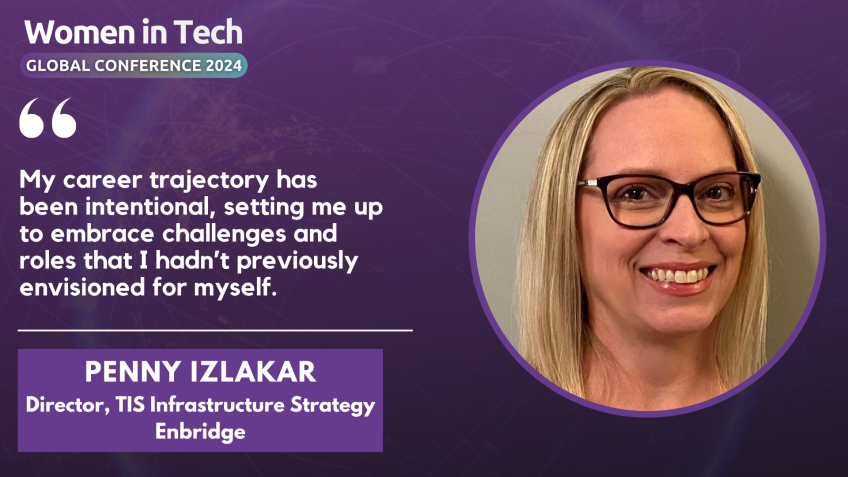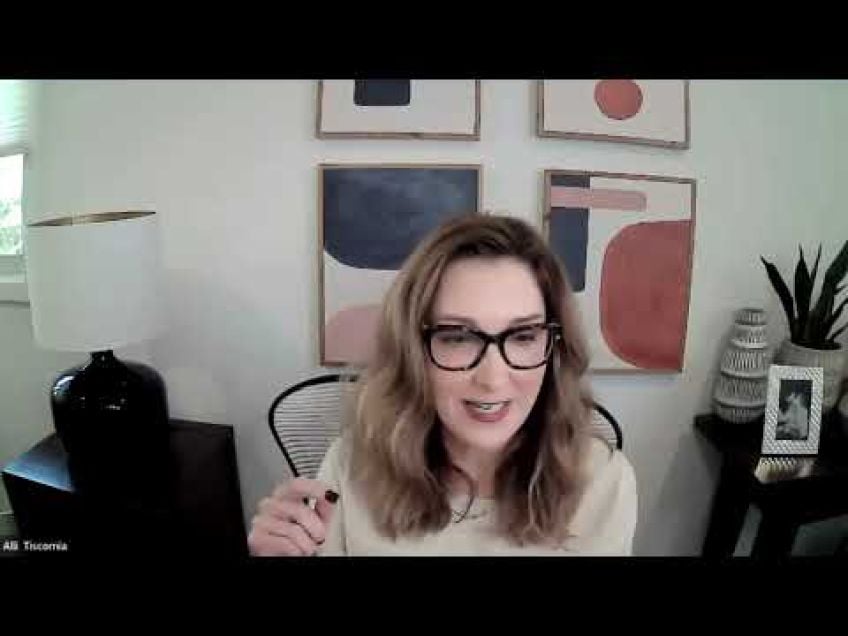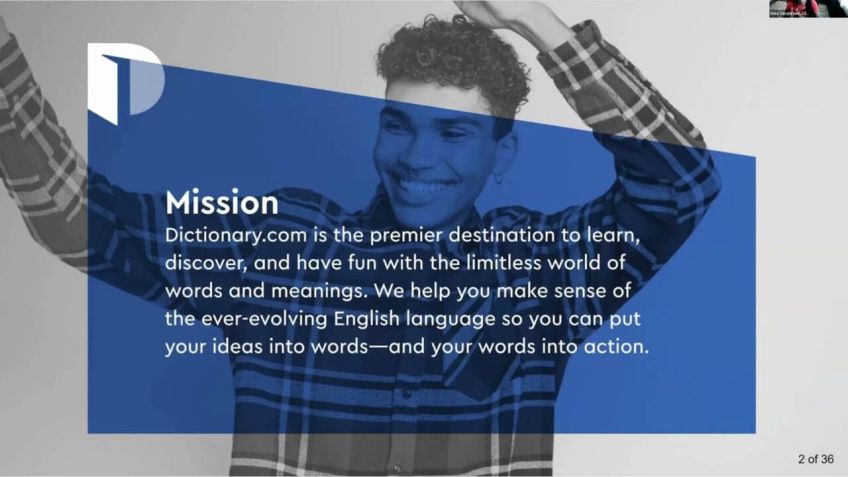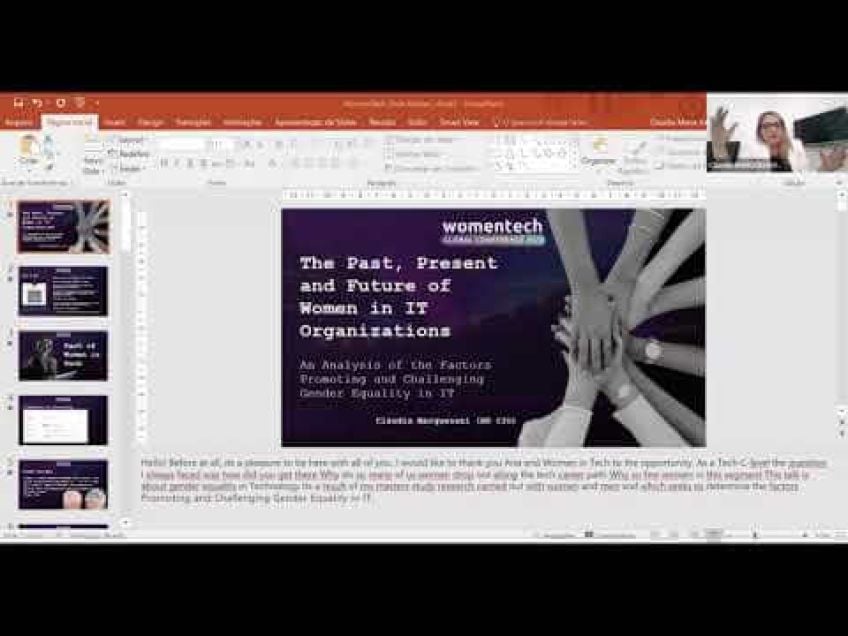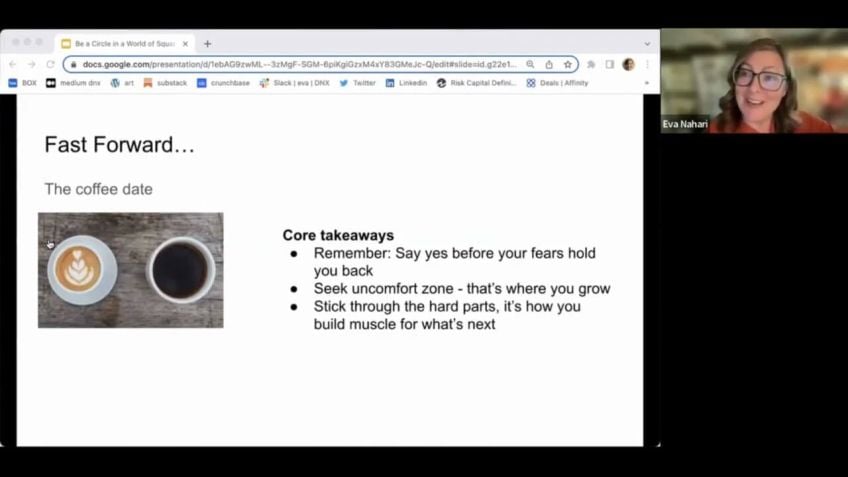Carving Your Personal Path to the C-Suite
Carving Your Professional Path: Insights from a Software Engineering Leader
In this blog post, we share an insightful conversation between Christine Sun, a software engineering leader specializing in Financial Services, and Deborah Scott, the current CIO of Harvard Medical School. Their fireside chat covers how to chart your personal path to the C-suite, the importance of overcoming obstacles, and strategies for facilitating cross-functional collaboration.
Meet the Leaders: Christine Sun and Deborah Scott
Christine Sun begins by welcoming the audience and introducing Deborah Scott, a seasoned professional with over 20 years of experience in C-level positions. Deborah, today serving as the CIO of Harvard Medical School, shares the steps she took, obstacles she overcame, and lessons she learned on her journey to the top.
Path to Becoming a CIO and Motivations for Staying in the Role
Deborah discusses her career trajectory, shedding light on how she planned and achieved her transition from being a middle manager to a long-serving CIO. She emphasizes how setting your sights on becoming a CIO involves strategizing your career path, understanding what industries are hiring, and identifying what skillsets are required. For her, one of the central motivations for becoming and staying a CIO was her ability to leverage strategic thinking and technology to make a real difference in the company and for the staff.
Key Elements of Success
Deborah shares insights into the factors she believes were critical to her success, namely:
- Work Experience & Education.
- Building and Maintaining Relationships.
- Joining Professional Organizations.
- Regularly Seeking Opportunities for Growth and Learning.
Overcoming Obstacles
Discussing the roadblocks encountered on her journey, Deborah advises ignoring naysayers, combating imposter syndrome, and seeking a supportive network. She advises focusing on your existing skills and abilities while keeping a keen eye on your passions.
Impact of People and Timing
Deborah credits support from her family, particularly her husband, and strategic timing for her transition into higher leadership roles. The decision to become a CIO, she asserts, is not just a career decision but a life decision that involves careful planning.
On Dealing with Burnout
In response to a question on how to prevent burnout, Deborah advocates for balancing work with activities you love. Keeping yourself active and anchored in reality through hobbies and interests can act as a counterbalance to work pressures.
Wrapping up
As the conversation comes to an end, Deborah and Christine nod to the importance of reaching out for opportunities, planning in alignment with personal circumstances, and leveraging networks for support on the path to becoming a CIO. This discussion equips aspiring leaders with actionable insights to carve their path in the tech industry. Looking ahead, it's clear that collaborative partnerships, strategic thinking, and leveraging technology will remain the cornerstones of successful leadership in the tech world.
Video Transcription
I think we can.
Yeah. Okay. Hello, everyone. My name is Christine Sun. I'm a software engineering leader in, Financial Services. I'm here today, very happy to be here, as the moderator, to talk with, have a fireside chat with Deborah Scott, Deborah is the CIO of Harvard Medical School, and she is going to share with us how to carve your personal, path to the C suite, Deborah, would you want to introduce yourself
Sure. Thank you, Christine. I'm Deborah Scott, and as Christine mentioned, I am currently the CIO at Harvard Medical School. This is my second run as a CIO. Previously, I was CIO, excuse me, at Worcester Polytechnic Institute. And prior to that, I was a chief technology officer of a large division at the University of California, Santa Barbara. So I've had about 20 years, in a C level position. And so I do feel like I have, carved the path, and I'm happy to be sharing some of my insights with you today.
Great, Deborah. So you are a long run, CIO. Could you tell us at what point Did you set your sights on becoming a CIO? And how did you create your road map?
Yeah. Sure. It was when I was a middle manager and I was a manager that was, looking to be, moving into a direct role about that time in my career is about 15 years into my career, when I was leading an information systems, team at a software company And, they that was the time. This was back in the in the nineties when they were just first creating, the role of CIO. And, I knew I wasn't ready for that role, but I saw who got the role and what they did, and they were my boss. And you know, after a while, I thought, you know, I I think I would do that real differently. I think I would, I would be more strategic and think about what does the business need, and I would be more supportive of the staff.
And I would help them grow and develop. I would really support their development as a leader, and I wasn't I didn't feel like I was getting that. From the CIO. And, I didn't feel that they were really listening and thinking strategically about how to best apply our resources toward, making a difference, both for the team and for the company. I thought, you know, I I think I could do that better. Yeah. I think I could fix some of this. And so I've started thinking about it at that point. And then I started looking at job postings for CIOs. I thought, you know, if I can do this, I I I need to think about what are people looking for? What are in the job advertisement?
So I would recommend that. Now go and look. Think about what industry do I wanna be in? Well, what streets are hiring in in that are related to the work that I have done. And what do What do I have already that I could bring to that job? But what am I missing? What things as far as experience? What I need to gain in order to check the things off that I'm seeing in the ads and what in terms of education am I missing?
That makes a lot of sense. Before we jump into more of the how, I want to, add one more question about the why. So, so you set your sights to become a CIO and the later, you actually became a CIO and then have a long run. What kept you motivated? Always want to do another CIO or keep being a CIO.
Right. Well, As I got to the CIO level, I realized that I am now that boss over the leaders underneath me that need my strategic direction. They need my support, but I also am the one who is the primary contact with the senior business leaders in the organization. And when they would come to me and say, you know, here we're faced with this new new technology. And so back in in the day when, I was first looking at this, it's like, how do we make sure we can do proper business process reengineering and getting away from, antiquated all the ways of doing things. Like, how do we partner to do this? And, how do we create the environment where we can revolutionize the way that our business units run So I needed to ideate with my strategic leaders, the rest of the people in the C suite, to help them understand what could we do?
And then to to help orchestrate my team, partnering with their team, to to actually make it happen. Yep. And to realize the value of the technology because of the close partnership that we had at the executive level, but all through our team down to the, you know, individual contributor, technology, and, technologists with business analysts in the business, partnering to make sure that we had a very successful project.
Then once you have a successful outcome, the rewards just keep coming. And, people are so happy that you actually changed their lives. In the back office, you've changed the way they work. In the front office, you've changed the way they work. And you've particularly changed the lives of the the customers and how they interact with the company or the institution. So in my case, in that case, that what, you know, was students or faculty, in the case of higher education, but the it you can really make a difference in the lives of a lot of people when you can have a collaborative partnership like that at all levels. And that's I think the most important thing for this the CIO is to be that strategic partner for the other senior executives and help that partnership all the way through the organization.
That makes sense. So build the culture of cross border collaboration. Yes. But also come up with solutions that'll revolutionize people's life. Yes. Yeah. And along the way, leverage technology.
Yes. Well, the technology is important, but the people are very important too. The people that are looking for the technology to help them do a better job at what they do in the company.
Yeah. That makes sense. Yeah. That makes sense. Okay. Now let's get into a little bit more the how. So you talk about, looking at different jobs descriptions, try to figure out what's needed. So you talk about work experience, talk about education. What are the other, key elements needed? To achieve your goal to become a CIO?
Well, there's, a lot of learning that can happen in addition to formal learning. I I did go back to school and got my master's degree in business administration. And, that was very important for the, the book learning and the, and learning the material. But what it did was it helped me to understand how, to think like a CFO. How to think, like, a chief marketing officer, how to think, like, chief operating officer, and how to be in the C suite is when you are the CIO, your primary colleagues are these key leaders in the organization. And so That MBA helped me to interact with people who were striving to get those sea level jobs and to understand what my role was in helping them be successful. And then in addition to that, I got a network there of people that I I'm still in touch with to this day.
And then there are other ways to gain experience, seeking the next job that you get to fill your skill gap, but also joining professional organizations and, volunteering to be speaker at a conference or to be a mentor in a mentoring program or to moderate a session. Those are all things that help get you connected with people who are like minded and supportive and can help you with your career. So I strongly encourage people to join a professional society and to get and to get involved. And then that's a really helpful way to, expand your opportunities and your network.
Yeah. That makes sense. So, as you're building up the road map, what are the roadblocks What are the obstacles that you have?
There are obstacles along the way. So I can name off a few. I don't wanna dwell on them because I think you should try to push them out of your life, things like, naysayers, people who are negative and tell you you can't do things or that you're not qualified. Don't listen to them. Yep. Don't listen to yourself when you have imposter syndrome. Everybody goes through that. Men and women, but a lot of women go through and syndrome, you know, like, maybe I don't belong here. Maybe I'm not good enough. You do belong here. You are good enough, and keep telling yourself that. Stay positive. And think about what what are the the skills and abilities and that I bring to the table and what am I passionate about and find that thing that you really wanna apply your skills to, that you believe in, and then believe in yourself.
And push the naysayers aside.
Yep. That's great. That's very positive too. Now look at the people So who are the most impactful people in your journey? Well, I
think it started when I was a child. My father, recognized that I was really good at math and science, and he really encouraged me. And he told me you know, you're really good at math and science. You can do anything you want. You can study, physics you could study engineering. You could study chemistry. You could do whatever you want, have whatever career you want. I believe in you, and you can do it. So I had a really good start. And getting, an engineering degree gave me a really good start on a technical career path. And then after that, then it gets into, my family. All of us at different stages of life make life choices, and I made a a life choice to get married and have a family.
And, it turns out that, My husband was one of the biggest assets in my career because, when I had young children, he decided that he wanted to be the stay home dad and deal with, challenges we had with a special needs, learning disability child. So that not only was that an enabling factor in my career, but it really made me think very seriously and have a lot more focus on what I wanna do with my career because then I'm now the sole breadwinner. I'm making a commitment to this family to have a successful career, and I really brought my career path into focus at that point. And it helped me to define my timing Like, when can I do something like, consider moving to a different job market to get that next job? In the job market I was in in California, I had very limited opportunities. So we planned it together as a family that when we get our kids through high school, that's when we can move.
So I had a target date, and that, I think, is important to consider What is your family situation? When does is the timing gonna work out for your own experience and career trajectory for your family and the choices that you have made. And then when it all aligns, you can make a move and get to that next level job. So, so that that was a very important, lesson for me. And I I I encourage you all to to really think that through means what you wanna do is when you get that 1st CIO job, you need to be dedicated a 100% to taking responsibility. And it's a a different role because you are the top level person in in technology for your institution or your company, and you might be called on at any time to think critically during a crisis situation anytime of the day or night. If there's something that needs your attention, and they pull the C suite together and you need to be there, you have to be present, available, strong, resilient, and able to take a full responsibility for the role.
And I realized I couldn't do that when I had kids at home. I needed to wait. And when I did get my first CIO role, I I did work a lot to go in and assess and really figure out how to take the reins and what did I need to do to set in motion the right things to be successful.
That that make a lot of sense. So it's not just a career decision. It's also a life decision. So you partner with your family, really plan together and implement together.
Yep. And and it's building colleagues and having mentors. I I also had a lot of very supportive colleagues that helped and encouraged me and a lot of mentors that helped me understand where my value was and how I could apply it and where my and what it really helped me think through Do I wanna go back to the tech world? Do I wanna stay in higher ed? What what is the place I can add the best value within? My, career trajectory.
Yep. Yep. Yep. That makes sense. And then, so in retro, what are things you would have done differently if you look back? Well,
Back when I was starting out as that middle manager looking to be in the C suite, I didn't feel like I had a supportive network of women and I wish I had had that. And I also didn't feel like I had support from the institution. There were no policies against harassment and discrimination at the time. And so I felt like I suffered alone through a lot of challenging things. And, and I wish I had had the the forethought to to start a women in technology group. And but so now women aspiring to these roles, hopefully have more support than they did. But I I encourage you to tap into that support. And to, you know, there's a lot of being resilient that and staying positive and ignoring the negative, but when you're really going through something tough, it's always good.
To have a support network.
That makes sense. Yeah. Never fight alone. But on the other end, I definitely see the change. I love the trend now, and then we all should work together and then make it even better. Right. Yeah. And then, I actually saw two questions from the audience. Okay. Maybe we can take those. The first one from from Elise. I hope I see your name correctly. How do you facilitate cross functional collaboration? When things move so quickly and everyone is saying they don't have enough time.
I think it's building relationships and building trust relationships. You wanna be the person who they reach out to when they don't have time because they know that you're there for them, and you can help provide solutions for them in a time of stress. So, that means meeting all of the the constituents and building partnerships with them. I when I first arrived at a a CIO position, I would go around and meet with, you know, go take them to lunch, get to know them, and help them understand that I'm here for you and do small wins for them. Small wins would be like, are you having any any current issues or recently? Is there anything I can help you with now? And then if you help them with something immediate now, then they're then they're willing and able to talk to you about, let's what else can we do long term strategy wise?
And and then you've already established that relationship because you're there for them in the short term when that you needed that they needed from you.
Yep. That's a really good approach. Yeah. Okay. Next question, is Could you please recommend the strategies for building relationships with senior leadership and maintaining visibility? Especially when there are limited opportunities for interaction. I think that's before you become CIO. Like, they are not your peers. They are. Oh,
before CIO. Well, if your CIO has has said to this other, like, the CFO, what what are pain points, what quick win can I do for you? What they're likely to do is say, well, I have a person over here who can step in and work with your analyst to do solve that problem. So if if there's an opportunity like that that's coming up, because there's a new CIO, you know, you could volunteer. You could say, hey, could I be the one that solves that? You know, I would come bring things back to my leadership team and say, hey, there's issue that they're having over in finance, does, you know, do can you think of anyone who would would be that would be a stretching opportunity for them? So maybe their maybe their boss is reporting the CIO, and you would tell them, hey.
If there's any opportunities, I'd like to be able to swing in and help and and then that would give you the visibility, and be volunteering to be on a project team. It I know it's hard to volunteer for things. But, I suggest doing it at least once a year, you know, just saying, hey, I wanna try this thing out and talk with your your boss and say, is, is, are there opportunities for me to stretch and grow, and can I can I do that kind of work? And then if the project is successful, then you get recognized and then you visibility to that level.
Yeah. So so definitely reaching out and then tell people what do you want to do and then seek those opportunities. Yeah.
I can only have, like, one minute left. Yeah.
We have only one. So do you want to take another question, or you want to yeah. Okay. So question, how not to be excessively hard with you, how to balance the way you get things done without the burnout?
That, I was let me tell you. I was successful at doing that until the pandemic, and then I got to burn out, because that was just way too much. But before that, I was able to do it by keeping myself active in the things that I love in my life. So, pursuing athletics and pursuing music were 2 things that I loved. And if I made time for them, I I was okay. It was like Thursday nights, I met Sequire rehearsal, and that gave me a break. To only think about that. And also Saturday mornings, I would I would go, you know, do a workout with a an athletic team and then I at least had my time to anchor me into reality into my life.
That makes sense. Yep. So we are at time. Okay. Thank you. Thank you, Deborah, for sharing your insights. And, also, thank you, everyone, to participate. Hope you have a very enjoyable, rest of the conference. Thank you so much.
Have a good day everyone. I'm just reading some of the chat. Yeah. And we're just at time. So people are signing off Thank you very much, everyone. Enjoy the rest of the conference. Really appreciate you coming. And thank you, Christine, so much for being such a great moderator and working through all of these questions with me ahead of time. It really made it a much much easier.
No. Thank you, Deborah. Thank you for the opportunity, actually, to speak with you. This is such a great learning and then a great honor as well. Thank you for being an inspiration.
Oh, sure. Sure. Anyway, for those of you who are still signing off, I'm working to help Christine, think about her career path. So that's why we decided to do this session, and, it's been a lot fun.
Yeah. So so I raised my head asking for help and then Deborah very generously, agreed to offer her wealth of knowledge, her experience, and then a lot of, teaching to me, was very, very helpful. So we will, like, it's a it's going to be a journey I look forward for a lot of the future, conversations and then, learning as well. Okay. Okay. Okay. Alright.
I guess we'll sign off then. Thank you, everyone. Thank you everyone.

